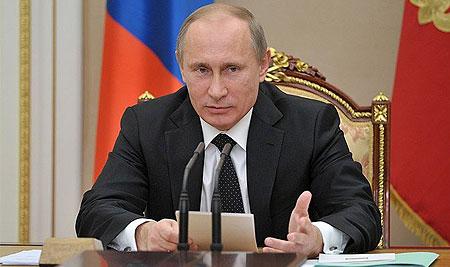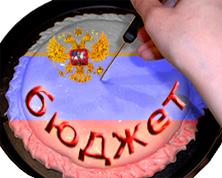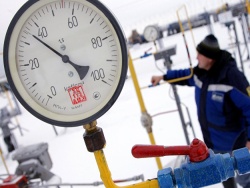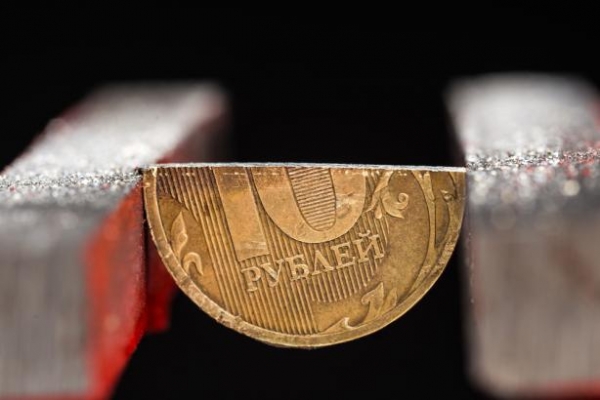
Liberal resents the West: Russia will not fall into a pit of economic crisis. The industry is doing not so bad; for two months in 2016 she even showed a slight increase. Unemployment jumped up to catastrophic sizes. The import is low: diversified Russian economy produces most of what it consumes. Foreign exchange reserves too high.
A Finnish entrepreneur, member of the Board of the European business Association, managing partner of “Awara”, polyglot (English, Russian, Finnish, Swedish, Spanish) Jon Hellevig pages “Awarablogs” spoke about the wrongness of the approach to Russia as to the West of the gas station (“the station under the guise of the country”).
In the West insisted that Russia’s economy was “torn to shreds” because Russians don’t have anything but to suck from the depths of the oil.
But, said the publicist, the share of tax revenues in the form of deductions from the sale of oil and gas in Russia decreased to 21%, however, no collapse of the Russian economy.
“Well, now their dream of low oil prices has come true, but, somehow, it failed to lead to the destruction of the Russian economy”, — notes the irony of a Finnish writer.
The industry is not only not collapsed, but showed a slight increase (1%) for two months of the current year and falling only slightly (by 3.4%) in 2015. Unemployment remained at 5.8% of the economically active population.
The trade balance for the year showed 46% of exports (tremendous!), thereby keeping 160 billion. in the Treasury of Russia.
The import is at a historically low level, but this is because “a large part of what it consumes, diversified economy Russia produces in the present time inside the country”.
Gold and foreign exchange reserves amounted, according to the latest data, 370 billion.
Last week, the expert continues, haters of Russia poured “a whole bucket of cold water” on the heads of opponents, stating that at the end of February the share of oil and gas tax revenues of the country decreased to 21%.
This figure has gone far from the 50% budget level, which Western “experts” usually lead to Russia, proving its dependence on oil and gas.
Finnish analyst believes that the new evidence suggests that Russia has “sufficiently diversified economy” and other sources of income at the time when the oil price goes down.
By Western standards, Russia is today a perfectly acceptable budget deficit (it is expected to be 3.8% of GDP for the consolidated budget compared to 4.6% in the previous year).
There may be some misunderstanding. The fact that the government of Russia reported that the share from the sale of oil and gas Federal budget revenues decreased to 37.4%, down to 21%, which says the analyst. He explains this discrepancy.
The key word here is “Federal”. By “some archaic reasons”, writes the expert, the Ministry of Finance publishes its report, in the concept of “Federal budget”. Finn believes that it can “mislead”. It would be correct to speak about the consolidated budget.
Due to the adopted accounting policy and administrative rules, budgetary system of Russia is divided into three main categories: Federal budget, regional budgets and state social insurance funds. Different types of taxes are sent to one of those budgets, and only complete their Union demonstrates the total revenue of the state, indicates publicist.
All proceeds of the tax to incomes of physical persons and about two-fifths of income tax and social security contributions (“taxes on wages”) remain outside the Federal budget. It is easy to imagine how this division varies from one year to another; actually, it has happened for many years.
Therefore, “it is pointless to copy large headlines declaring the income from oil and gas from one part of the state budget”. It hurts primarily those that make the decisions in the economy.
In most countries, these taxes are included in the same budget. For example just look, say, on the budget of the United States. Therefore, the expert believes, that if one analyzes the dependence of Russia on oil and gas and takes into account the role of raw materials in the Russian public finances, it is necessary to operate the indicators of the consolidated budget, not the Federal.
“Awara” was made back in December of 2014, the economy is much more diversified and modern than most people think. The stability of Russia in the period of sanctions and low oil prices mostly proven. So who is hurting Russia the myth of oil dependency?
According to Finn, there’s wine “liberal economists and the media”, which “distort” the situation by manipulating shares in exports and tax revenues from the oil and gas industry of Russia. He thinks that these people “hate” the commodity industry, as it “helps to preserve the independence of Russia”.
According to the analyst, Putin “for many years managed the economy” so that the decline in oil prices “are not ruined the country”.

A different view, we would add, this year… was expressed by Vladimir Putin.
The biggest damage to Russia — not the sanctions, while oil and gas revenues that the government has come to depend on, said President of the Russian Federation in a January interview with the German edition “Bild”.
“As for the greatest harm, which is applied to the current situation, of course, first and foremost, the damage to our economy is the harm from the declining prices of traditional export commodities. But in the first and second is negative, but, strangely enough, there are also positive things,” quoted him as saying vestifinance.ru.
“When oil prices are high, it is very difficult to refrain from use of oil revenues to current expenditure. And the oil and gas deficit has grown, in my opinion, to a very dangerous line, — said Putin. — Now we have to decrease it. And it heals”.
“We have a common deficiency, is the non-oil revenues. There are revenues we receive from oil and gas, — said the President. — The General deficit of small. And barring the oil and gas, from oil and gas would be too large. And in order to reduce a country like Norway, say, a significant portion of non-oil revenue directs in the reserves. Very difficult to refrain from spending, I repeat, the spending revenues from oil and gas. The reduction of these costs invigorates the economy. This is the first”.
And here is the second: “And secondly, everything can be bought for petrodollars. And when the income from them is high, then destimulate own development, especially in high-tech industries. We have now observed a decline in GDP by 3.8%, industrial production — by 3.3%, inflation rose to 12.7%. That’s a lot, but we still have a positive balance of foreign trade, and for the first time in many years, significantly increased the volume of export of products with high added value. This is certainly a positive process within the economy”.
Thus, Vladimir Putin was talking about the biggest harm to the economy “from the declining prices of traditional products” of the Russian export. “Traditional” is oil and gas. High prices for oil and gas lead to the development destimulative: “everything can be bought for petrodollars”. Then there is the harm. It is clear that a strong dependence on sales of raw materials, as well as the global market environment does harm to Russia. It is difficult to argue.
Hellevig is, we recall, believes that raw material industry “helps to preserve the independence of Russia”.
Probably the same way preserve the “independence” of Arab monarchies — Qatar or Saudi Arabia. It remains unclear why they 1970s petrodollar involved in collusion with the United States. Perhaps, because of more independence.
Truly independent can be strong and only high-tech country, able to provide for themselves, and not the one that drains from the depths of raw materials and sends “partners”, and on the gained money buys American treasuries.
As for “liberal economists and their media” mentioned by Hellenism, not liberals whether seated someone in the chair of the economic block of the government? Elephant did not notice, right?








